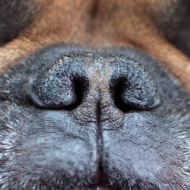Brachycephalic Working Group unveils new strategy

Strategy considers how to change wider public attitudes to extreme conformations in brachycephalic dogs.
The UK Brachycephalic Working Group (BWG) has committed to a five-year strategy to advance its work to improve the lives of flat-faced dogs.
Designed collaboratively by the group, the strategy identifies three core challenges:
• dramatically reducing the numbers and popularity of dogs with brachycephaly
• promoting a more moderate and healthier body shape for future dogs with brachycephaly
• reducing the negative impacts of brachycephaly on the current generation of dogs with brachycephaly.
In order to create the strategy and outline the direction of the BWG, the organisation conducted a review. A questionnaire was created and distributed to BWG members and external groups with an interest in the welfare of brachycephalic dogs such as veterinary bodies and dog breed clubs.
Respondents were asked how they felt about the BWG, and what needs to be done to increase impact, and the results of this formed the basis of the updated plan.
Dr Dan O'Neill, BWG chair, said: “BWG understands that the serious health problems associated with the flat-faced body shape can cause many dogs to suffer and considers that the health and welfare problems linked to breeding for a flat face are one of the UK’s leading canine welfare priorities.
“This new strategy lays out a plan to redress many of these issues and we call on everybody to ‘Stop and think before buying a flat-faced dog’.”
The five-year strategy outlines the actions required by the group as a whole, and by individual members, and displays the actions and aspirations involved in these.
Actions the BWG has committed to include working to prevent the inappropriate use of imagery of brachycephalic dogs in advertising and developing and promoting a Brachycephalic Health Assessment veterinary consultation framework.
The full strategy document can be accessed here.



 The Federation of Independent Veterinary Practices (FIVP) has announced a third season of its podcast, Practice Matters.
The Federation of Independent Veterinary Practices (FIVP) has announced a third season of its podcast, Practice Matters.